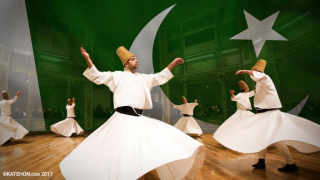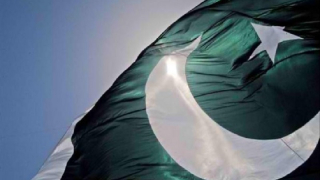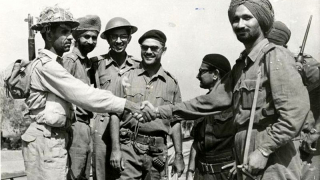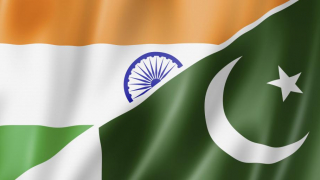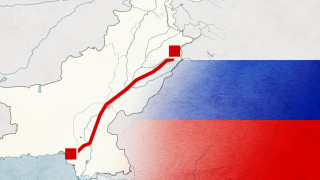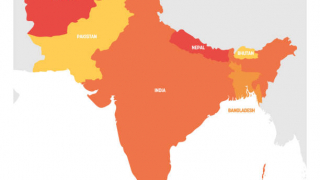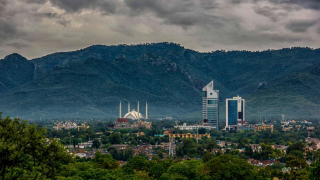Russia Pak and Eurasia factor
Russia Pakistan relations have seen and uneven trajectory in last four decades. The Afghan war set the stage for an uneasy relationship when Pakistan sided with the International community to stem the tide of Soviet Union towards the warm waters of Arabian Sea.
It is unfortunate that both sides kept viewing the relationship through the prism of Cold War and despite graphical proximity could not develop a meaningful relationship. The thaw in Russia Pakistan relationship occurred in 2003 when Musharraf offered an Olive branch to the Russian leadership during his visit to Moscow; it was perceived that Pakistan should not put all her eggs in one (American) basket and find alternatives as far as a relationship with big powers was concerned. Russia responded positively and a series of visits between high dignitaries and government officials started in the field of diplomacy, economy and defence cooperation. Russia Pakistan have increased corporation in International Security and have held number of military exercises to cement the relationship, more recently Pakistan along with her neighbors have joined the SCO and other forums based on Russian and Chinese initiative of a grand Eurasian alliance.
Pakistan sets in a shatter zone where International power play takes place on almost daily basis and remains under diplomatic and economic pressure due to extra regional powers as well as regional players.
The long war in Afghanistan, which never seems to be ending, has seriously affected the security environment and economic uplift of the region around West Asia, Russian Federation sits very close to Afghanistan and cannot remain oblivious to the development as any rise of terrorism in this part of the world affects the soft belly of Russian Federation. Russia has also enjoyed historic relationship with India and has always desired that peace should prevail in South Asia; Tashkent agreement is one such example where Russian mediation after the 65 war paved way for diplomacy to resolve issues between India and Pakistan. Russia has also developed close relationship with Iran and now Turkey, and has built upon The Eurasian thought of respect to everyone and collective economic prosperity.
As stated by Uzair Younus in The Diplomat in June 2018, four developments have provided Russia with an opportunity to undercut U.S. interests: the growing presence of the Islamic State (ISIS) in Afghanistan, the U.S. decision to withdraw from the Iran nuclear deal, Washington’s evolving relationship with India and Pakistan, and Chinese investments in Central Asia under the Belt and Road Initiative (BRI). The inability of Afghan and U.S. security forces to exercise control over Afghanistan’s territory has allowed ISIS to establish a significant presence in the region. Recent suicide bombings that targeted urban areas of Afghanistan are the latest in a string of ISIS attacks in Afghanistan, growing ISIS presence in Afghanistan concerns Russia, which fears that the Islamic State in Afghanistan could draw in Chechen and Uzbek militants, fomenting instability in Russia’s periphery.
As Imran Khan won recent elections, I had advised that he needed innovative and new approach to deal with multifarious foreign policy challenges affecting Pakistan. Russian Federation is one such avenue which provides for out of box thinking and solutions to help Pakistan develop a strong diplomatic relationship in the region. It may be important to refresh ourselves with Russian political and strategic thought, especially in international relations . Russian contemporary political thought in the international arena is driven by think tanks and ideologues and of course the leadership of President Putin. It has evolved over a period of three decades, especially after President Putin decided to break away the old traditional thinking and western orientation of Russian foreign policy. Thus a new concept of Eurasia led by China and Russian Federation was conceived and promulgated. One of the proponents of this Fourth Political Theory is Alexander Dugin who has unorthodox and innovative ideas and considers that Russia must regain the loss strategic space in Eurasia and beyond; Dugin’s thoughts have morphed into school of thought in Russia, called the Duginists.
The Duginists feels that Eurasia has enormous potential and clout to develop a parallel International system of collective security and economic development without interference or help from the Trans-Atlantic power (The US)
During a discussion on “The alternatives to globalism: the strategies of the multipolar world” posted on social media by Geopolitica Ru, a Russian think tank, Alexander Dugin has come up with the notion that present International globalism is an archaic system which has maintained hegemony over the globe through a doctrine of selective Western liberal democracy, thrust upon the developing world without the consent of nations, actually international globalism is an ideology that is now aimed at decomposition of nations, societies and states through atomization process, disregarding collective identity of nations, cultures, language and religion, producing atomic individuals and is anti-social, reducing humans to the status of global robots.
Blasting the concept of civil society and human rights being engineered through globalist ideology, Dugin feels that humans are being encouraged to be citizens of humanity and not of any culture and nations, which sets the stage for extended chaos. Globalist agenda is also reducing organic unity of humans to the level of individuality and integrating these robots under a global dictatorship.
I will end the paper by mentioning two very recent developments; On July a Russian Mountaineer Alexander Gukov was rescued in a daring Helicopter Operation narrowly avoiding an accident from an altitude of 6300 meters of Latok peak in Northern Pakistan by Pakistan Army; this heroic gesture was widely covered by Russian media like RT, paying tribute to Pakistan.
During visit of Russian Deputy Defence Minister Col General Fomin on 7th August, it was mutually agreed that Pakistani troops and officers will train in Russian military institutions
I suggest that Russia Pak relations have to go beyond the defence and security and should be made more diverse by informal people to people contact and exchange of ideas, we need to create a mutually agreed architecture of social interaction, think tanks, cultural exchange, tourism and small businesses that can not only diversify the relationship but allow innovative ideas to help cement the growing relationship.
Source: The Nation


